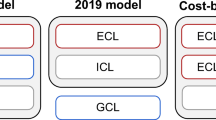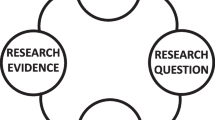Abstract
Mind mapping is a powerful technique that is often used for teaching declarative knowledge, but seldom implemented to record procedural knowledge. The present study focused on the latter. During a 12-week public presentation course, self-developed mind mapping software was utilized as a learning tool and an instrument to collect and analyze user behavior logs while summarizing and revising procedural knowledge. The participants were 53 working adults. They were divided into successful and unsuccessful mapping profiles based on their improvement. The pre- and post-tests on presentation skills, lag sequential analysis on log data, and interviews suggested that participants showing successful mapping behavior prioritized readability and ease of navigation of their maps. Their counterparts with unsuccessful mapping behavior tended to overload their maps and overuse highlighting. The discovery of actions and behavior patterns during the creation and revision of mind maps corresponding to successful/unsuccessful mind mapping profiles provides important suggestions to enhance existing digital mind mapping tools and to diagnose students who are falling behind. The implementation of mind mapping for procedural learning expands the area of mind mapping research and enlarges our understanding of teaching procedural knowledge.





Similar content being viewed by others
References
Ackerman, P. L., & Kanfer, R. (1988). Declarative and procedural knowledge in skill acquisition: An aptitude—treatment interaction framework for training. In V. John (Ed.), Proceedings of the human factors society annual meeting. SAGE Publications.
Ashcraft, M. H., & Krause, J. A. (2007). Working memory, math performance, and math anxiety. Psychonomic Bulletin & Review, 14(2), 243–248.
Bhattacharya, D., & Mohalik, R. (2020). Digital mind mapping software: A new horizon in the modern teaching-learning strategy. Journal of Advances in Education and Philosophy, 4(10), 400–406.
Black, R. (2019). Glossophobia (Fear of public speaking): Are you glossophobic. Retrieved November 7, 2022 from https://www.psycom.net/glossophobia-fear-of-public-speaking.
Buzan, T. (1983). Use both sides of your brain. EP Dutton.
Buzan, T., & Buzan, B. (2006). The mind map book. Educational Publishers LLP.
Chang, K. E., Sung, Y. T., & Chen, I. D. (2002). The effect of concept mapping to enhance text comprehension and summarization. The Journal of Experimental Education, 71(1), 5–23.
Chow, J. Y. (2013). Nonlinear learning underpinning pedagogy: Evidence, challenges, and implications. Quest, 65(4), 469–484.
Davies, M. (2011). Concept mapping, mind mapping and argument mapping: What are the differences and do they matter? Higher Education, 62(3), 279–301.
Elo, S., & Kyngäs, H. (2008). The qualitative content analysis process. Journal of Advanced Nursing, 62(1), 107–115.
Frerichs, L., Young, T. L., Dave, G., Stith, D., Corbie-Smith, G., & Lich, K. H. (2018). Mind maps and network analysis to evaluate conceptualization of complex issues: A case example evaluating systems science workshops for childhood obesity prevention. Evaluation and Program Planning, 68, 135–147.
Galván-Sánchez, I., Verano-Tacoronte, D., González-Betancor, S. M., Fernández-Monroy, M., & Bolívar-Cruz, A. (2017). Assessing oral presentation skills in electrical engineering: Developing a valid and reliable rubric. International Journal of Electrical Engineering Education, 54(1), 17–34.
Grazziotin-Soares, R., Curtis, D. A., & Ardenghi, D. M. (2021). Use of mind maps in dental education: An activity performed in a preclinical endodontic course. Journal of Dental Education, 85(5), 623–633.
Heckner, M. K., Cieslik, E. C., Eickhoff, S. B., Camilleri, J. A., Hoffstaedter, F., & Langner, R. (2021). The aging brain and executive functions revisited: Implications from meta-analytic and functional-connectivity evidence. Journal of Cognitive Neuroscience, 33(9), 1716–1752.
Hurrell, D. (2021). Conceptual knowledge or procedural knowledge or conceptual knowledge and procedural knowledge: Why the conjunction is important to teachers. Australian Journal of Teacher Education, 46(2), 57–71.
Kern, C. S., & Bush, K. L. (2006). Mind-mapped care plans: Integrating an innovative educational tool as an alternative to traditional care plans. Journal of Nursing Education, 45(4), 112–119.
Knowlton, B. J., & Moody, T. D. (2008). Procedural learning in humans. In J. H. Byrne (Ed.), Learning and memory: A comprehensive reference (pp. 321–340). Academic Press.
Lee, C. B., Jonassen, D., & Teo, T. (2011). The role of model building in problem solving and conceptual change. Interactive Learning Environments, 19(3), 247–265.
Mayer, R. E. (2017). Using multimedia for e-learning. Journal of Computer Assisted Learning, 33(5), 403–423.
Merchie, E., & Van Keer, H. (2016). Stimulating graphical summarization in late elementary education: The relationship between two instructional mind-map approaches and student characteristics. The Elementary School Journal, 116(3), 487–522.
Nickols, F. (2000). The knowledge in knowledge management. The Knowledge Management Yearbook, 2000–2001, 12–21.
Nyagblormase, G., Gyampoh, A., Hinson, J., Aidoo, B., & Yeboah, E. (2021). Effect of mind mapping as a learning tool on online learning of chemistry. Studies in Learning and Teaching, 2(2), 47–58.
Okebukola, P. A. (1990). Attaining meaningful learning of concepts in genetics and ecology: An examination of the potency of the concept – mapping technique. Journal of Research in Science Teaching, 27(5), 493–504.
Polat, O., Yavuz, E. A., & Tunc, A. B. O. (2017). The effect of using mind maps on the development of maths and science skills. Cypriot Journal of Educational Sciences, 12(1), 32–45.
Sackett, G. P. (1978). Observing behavior: Theory and applications in mental retardation. University Park Press.
Shapiro, S. S., Wilk, M. B., & Chen, H. J. (1968). A comparative study of various tests for normality. Journal of the American Statistical Association, 63(324), 1343–1372.
Shi, Y., Yang, H., Dou, Y., & Zeng, Y. (2022). Effects of mind mapping-based instruction on student cognitive learning outcomes: A meta-analysis. Asia Pacific Education Review. https://doi.org/10.1007/s12564-022-09746-9
Vakil, E., & Agmon-Ashkenazi, D. (1997). Baseline performance and learning rate of procedural and declarative memory tasks: Younger versus older adults. The Journals of Gerontology Series B: Psychological Sciences and Social Sciences, 52(5), 229–234.
van Gog, T., & Sweller, J. (2015). Not new, but nearly forgotten: The testing effect decreases or even disappears as the complexity of learning materials increases. Educational Psychology Review, 27(2), 247–264.
VanLehn, K. (2013). Model construction as a learning activity: A design space and review. Interactive Learning Environments, 21(4), 371–413.
Viberg, O., Hatakka, M., Bälter, O., & Mavroudi, A. (2018). The current landscape of learning analytics in higher education. Computers in Human Behavior, 89, 98–110.
Vosniadou, S., Skopeliti, I., & Ikospentaki, K. (2004). Modes of knowing and ways of reasoning in elementary astronomy. Cognitive Development, 19(2), 203–222.
Walker, J. M., & King, P. H. (2003). Concept mapping as a form of student assessment and instruction in the domain of bioengineering. Journal of Engineering Education, 92(2), 167–178.
Wilensky, U. (1999). GasLab–an extensible modeling toolkit for connecting micro- and macro-properties of gases. In W. Feurzig & N. Roberts (Eds.), Modeling and simulation in science and mathematics education (pp. 151–178). Springer.
Zheng, X., Johnson, T. E., & Zhou, C. (2020). A pilot study examining the impact of collaborative mind mapping strategy in a flipped classroom: Learning achievement, self-efficacy, motivation, and students’ acceptance. Educational Technology Research and Development, 68(6), 3527–3545.
Acknowledgements
This research was supported by the National Science and Technology Council (MOST 108-2511-H-011-002-MY4, MOST 111-2811-H-011-004). We would like to express our gratitude to Dmitrii Matveichev for developing the software for the research.
Author information
Authors and Affiliations
Corresponding author
Ethics declarations
Conflict of interest
The authors declare that they have no conflict of interest.
Additional information
Publisher’s Note
Springer Nature remains neutral with regard to jurisdictional claims in published maps and institutional affiliations.
Rights and permissions
Springer Nature or its licensor (e.g. a society or other partner) holds exclusive rights to this article under a publishing agreement with the author(s) or other rightsholder(s); author self-archiving of the accepted manuscript version of this article is solely governed by the terms of such publishing agreement and applicable law.
About this article
Cite this article
Evers, K., Chen, S. Successful and unsuccessful mapping behaviors for learning procedural-type knowledge. Education Tech Research Dev (2024). https://doi.org/10.1007/s11423-023-10336-8
Accepted:
Published:
DOI: https://doi.org/10.1007/s11423-023-10336-8




